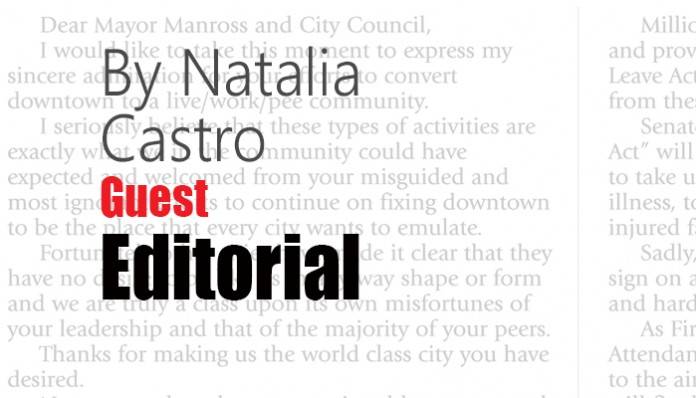While Republicans are still celebrating the Supreme Court’s temporary allowance of President Donald Trump’s travel ban against six Muslim-majority countries, Iran, Sudan, Syria, Libya, Somalia and Yemen, the President has decided to switch focus back to the reason for the travel ban in the first place. That is, the necessity for extreme vetting procedure to prevent potential terrorist entry into the U.S.
On June 21, Trump signed an executive order that will make this possible by removing the unsecure vetting rules put in place by the Obama Administration.
President Trump’s recent Executive Order Amending Executive Order 13597, removes a section of former President Obama’s 2012 Executive Order-Establishing Visa and Foreign Visitor Processing Goals and the Task Force on Travel and Competitiveness. The executive order was meant to increase visa approvals and in the amended section, expedite the visa review process in non-waiver countries with the goal to “ensure that 80 percent of nonimmigrant visa applicants are interviewed within 3 weeks of receipt of application, recognizing that resource and security considerations and the need to ensure provision of consular services to U.S. citizens may dictate specific exceptions.”
As a response to this increased demand by Obama, a specific task force was even created on National Travel and Tourism Strategy, but their 2012 reported mentioned nothing about visas and vetting travels, only the benefits of increased tourism. Yet in April of 2013, the DHS reassured congress the modernizations of the system will “increase investigations of visa applicants who pose a potential high risk for terrorism and are attempting to travel to the United States,” but this has not happened.
The Department of Homeland Security (DHS) sought ways to streamline the entire review process. In April 2013, DHS officials testified to a Senate Committee on Appropriations that in order to “strengthen visa processing and facilitate legitimate travel and tourism,” certain individuals with previously approved visas applicants would not be re-interviewed, that the visa waiver program would expanded, and TSA Pre✓™ be created.
This focus on increasing tourism rather than national security has already made the American people susceptible to danger.
It is important for Americans to remember that while the Supreme Court reinstated Trump’s travel ban, they did so only partially, ruling to allow continued travel for individuals with a “bona fide relationship with a person or entity in the United States.” This includes familial relationships, which once again highlights the entire need for Trumps precautions — even in the status quo, strict vetting procedure must be followed to ensure threats do not slip through the cracks.
If established vetting procedures had simply followed, it could have prevented Tashfeen Malik, perpetrator of the 2015 San Bernardino terror attack with her husband, Rizwan Farook, from entering the country on a fiancé visa.
House Judiciary Committee Chairman Bob Goodlatte explained in a press release in Dec. 2015, “After reviewing Tashfeen Malik’s immigration file, it is clear that immigration officials did not thoroughly vet her application. In order to obtain a fiancé visa, it is required to demonstrate proof that the U.S. citizen and foreign national have met in person. However, Malik’s immigration file does not show sufficient evidence for this requirement… the immigration official reviewing Malik’s application requested more evidence to ensure the two met in person but it was never provided and her visa was approved anyway.”
Instead, policies under the Obama administration continued to speed up the vetting process, ignoring clear lapses and encouraging employees to push visas through due to arbitrary time constraints. This is something DHS officials must be mindful of as Trump has widened exceptions on the travel restrictions to include fiancé visas like the one Malik used to enter the U.S. — by ensuring that existing rules are followed to ensure that existing rules are followed so that this does not happen again.
Another recent lapse in vetting was discovered by federal agents in 2015 reinvestigating the backgrounds of dozens of Syrian refugees already in the U.S. The LA Times of Jan. 2017 explains, “The refugees whose cases are under review include one who failed a polygraph test when he applied to work at a U.S. military installation overseas and another who may have been in communication with an Islamic State leader.”
Even under a more regulated system, President Obama did nothing to address clear holes in the existing vetting process. Rather than speeding the process up, DHS should be slowing the process down to ensure they are adequately vetting those entering the U.S.
In that regard, Trump’s latest executive order on all travel into the U.S. is the first step is ensuring this can occur.
By removing arbitrary deadlines for approval, the DHS and the State Department will have greater control to investigate potential security risks. This is not an old concept, in fact, the 9/11 Commission requested these changes after the deadliest terror attack in our nation’s history.
The Commission Report warned about terrorist using visas to enter the country and suggested, “Both implementing new security measures for U.S. passports and working with the United Nations and foreign governments to raise global security standards for travel documents.”
While we still do not know what the extent of President Trump’s extreme vetting will look like — agencies are still working diligently through the details — nearly two decades after 9/11 it is clear it is long overdue. By removing President Obama’s policies which shortened the vetting process without regard for national security, U.S. departments can now get started implementing the new policy to make American safe again.
Natalia Castro is a contributing editor at Americans for Limited Government.





